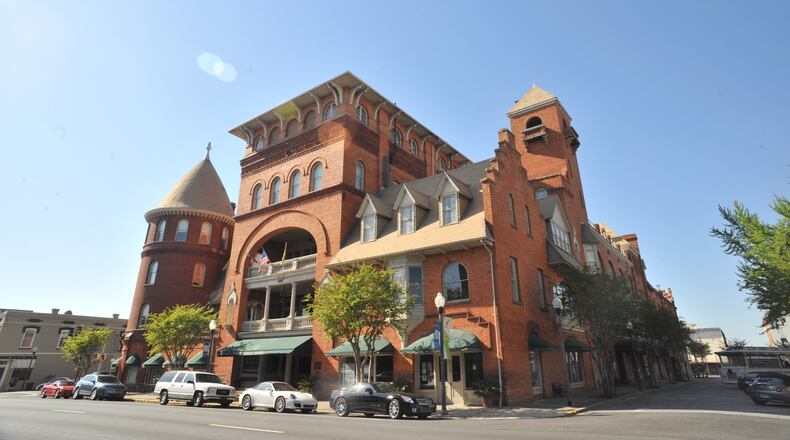Americus, where two law enforcement officers were shot Wednesday morning, is the county seat of Sumter County in southeast Georgia. With a population of just over 17,000 in the 2010 census, Americus may be much smaller than Georgia’s capital of Atlanta located some 150 miles to its north — but it has long played an outsized role in state and national affairs due to geography and the accomplishments of its notable residents.
The city was incorporated in 1832 as the heart of a triangle formed by Macon, Columbus and Albany, just 16 miles west of the bustling Flint River. Its population doubled between 1850 and 1860 with the arrival of the South Western Railroad and its location became key to the South’s effort during the Civil War. In 1864, the entire town was converted into a Confederate hospital; meanwhile, Union prisoners began arriving at the prison camp at Fort Sumter ten miles north of Americus near Andersonville.
Starting as a trench burial site for prisoners who died in the camp, Andersonville National Cemetery is now a permanent place of honor for those who died in military service to our country. It's part of the larger Andersonville National Historic Site, which is operated by the National Park Service and also includes the National Prisoner of War Museum. There are now more than 20,000 grave sites at the cemetery, which remains open and active for burials.
Just nine miles to the west of Americus, meanwhile, lies the tiny Sumter County town of Plains. Boasting some 600 residents and a business district barely one block long, Plains is home to the Jimmy Carter National Historic Site. Dedicated to telling the life story of the country's 39th president and his wife, Rosalynn — both of them lifelong Plains residents — the site is a magnet for tourists and a boon to Americus, whose motels they pack on weekends when Carter is teaching Sunday school at Maranatha Baptist Church and during the annual Plains Peanut Festival. Indeed, Americus's rare setting smack in between two National Historic Sites probably explains why the city proclaims on its web site, "We are a town full of history with a constant eye toward the future."
Before her marriage to the future president, Rosalynn Carter attended Georgia Southwestern College (now Georgia Southwestern State University, near the site of Wednesday's shootings). Along with South Georgia Technical College, it's one of two institutions of higher learning in Americus. The downtown area is dominated by the handsome Windsor Hotel, which opened in 1892 as a haven for Northern visitors is search of balmier, cultured climes during the winter. Stretching nearly an entire city block, the red brick Victorian structure features a tower and turret, as well as — what else? — the Carter Presidential Suite where dignataries often stay while in the area to meet with the Nobel Peace Prize winner from Plains.
The downtown area is also home to Habitat for Humanity International's Global Village & Discovery Center. Indeed, the idea that grew into Habitat for Humanity first germinated in the mid-1970s at Koinonia Farm, a community farm situated just outside of Americus; while Habitat's administrative headquarters are now located in Atlanta, the nonprofit homebuilding group's international headquarters remain in Americus and the six-acre village gives visitors an opportunity to learn more about the organization's work and view life-size Habitat houses from countries around the world.
About the Author
Keep Reading
The Latest
Featured

